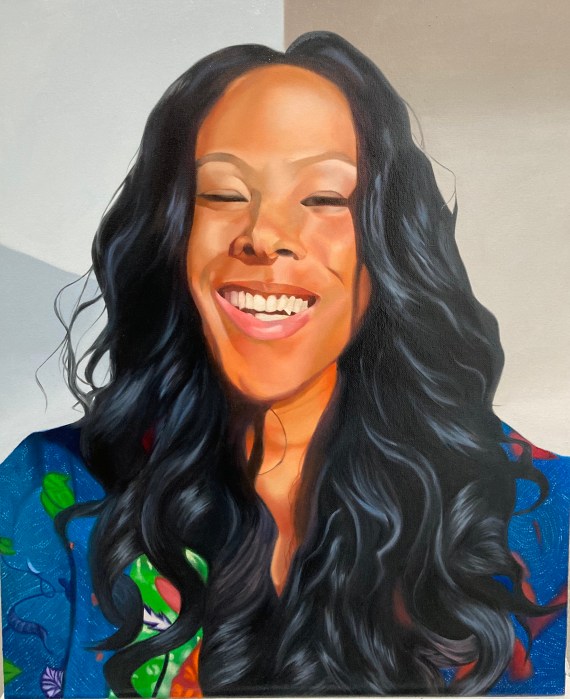Friday afternoon, Gregory Murad couldn’t believe the news. “They’re going to close Rikers?” he asked.
They are, or at least they say they will: Mayor Bill de Blasio and City Council Speaker Melissa Mark-Viverito, that is, making what de Blasio called a “historic announcement” in the rotunda of City Hall on Friday. The two had reached an agreement on a “vision” to close the notorious jail complex in 10 years, by nearly halving the city’s total jail population to under 5,000 and building “a few more facilities” elsewhere in the city, de Blasio said.
The politicians made the announcement ahead of the release of an independent commission’s report on the city’s jail and criminal justice system, which suggests that Rikers must be closed.
A necessary step, but hard to accomplish
“I don’t think they’re gonna do that,” said Murad, who has done time upstate, as well as stints on Rikers. He was skeptical the jail could close, but he thought it should.
We met last year for a column about the use of LinkNYC kiosks’ tablets. Murad and a friend were staring warily at one of the kiosks on 8th Avenue. The friend hadn’t seen them before, Murad said, because he’d just gotten out of prison. In the interim, the city had apparently sprouted free Wi-Fi.
A robbery conviction had sent Murad upstate: he was sentenced for seven years. But smaller things landed him in Rikers: a possession charge — he said he’d been carrying paraphernalia. Plus a violation of parole.
He was familiar with the long bus ride, from Brooklyn all the way to the island, accessible by a single bridge at the edge of Queens. Inmates crammed in, sitting next to each other, sometimes talking a little, asking what the other was in for. Sometimes people get sick on the buses, throwing up as the symptoms of withdrawal set in. The ride “seems like you can feel every bump in the road.”
What was wrong with Rikers? The food, the fights, the gangs. The smell: “it never leaves you,” said Murad, “it burns your nostrils.” The sometimes decrepit conditions, which could be dangerous for both inmates and correction officers: walls from which pieces could be pulled, filed down, used as a weapon.
In the summer, Murad said, cells got so hot the only way to sleep would be to abandon the bed and lie on the “nice cool floor.”
Like many people who’ve spent time on Rikers, he said upstate prisons were often better: less crowded, sometimes safer, certainly less boring. There is more programming upstate, more places to move around.
None of that is news to city officials. Rikers has long been fully acknowledged to be a bad way of doing business. According to the independent commission led by former state chief judge Jonathan Lippman, whose report was released over the weekend, Rikers is an island apart that sometimes allowed for “shocking brutality,” a finding echoed by groups including the U.S. Attorney’s office. The complex is far from the courts that sentence and process inmates, far from the relatives who might visit and keep individuals mentally close to home. Old facilities make it difficult to do modern educational programming, which has been long promised but never fully delivered in current spaces.
And then there are the systemic problems: a clogged court system, for example, means more than half of the city’s jail population is simply waiting for trial, much delayed.
Aggressive quality-of-life policing pulls the same people onto that bus to Rikers again and again — like Murad, who is now living in Bellevue Men’s Shelter while trying to find housing. He says he had spent too many holidays isolated on Rikers, and isn’t looking to spend any more. But staying off the island in the short-term will be more up to him than dependent on the city’s closing announcement: he just couldn’t bring himself to imagine that Rikers could be gone.
It’s no done deal
Ten years is a long way off, and the mayor did not commit to naming or pushing through any new jail sites during his tenure.
Those fights will certainly be ahead. Former correction commissioner Martin Horn, who lost his own battle to enlarge an existing jail in Brooklyn during the Bloomberg administration, notes Staten Islanders “have expressed unequivocal opposition” to new jails. And there’s the difficulty of adding space or a jail in Manhattan, key to any truly borough-based approach: “That’s not going to be easy.”
Friday’s announcement is the first step on a long road that will also need to include big changes in how the city makes arrests and keeps people held. To get down to around 5,000 inmates, the Lippman report suggests sentences shorter than 30 days and a bail system that doesn’t depend on money, for example. That won’t happen overnight either.
So it’s not so strange that people like Murad who know Rikers best will believe it when they see it. But turning the corner on a place that has been an enduring nightmare for thousands of New Yorkers every year — 33,561 in 2016 — is cause for some celebration, at least.

















